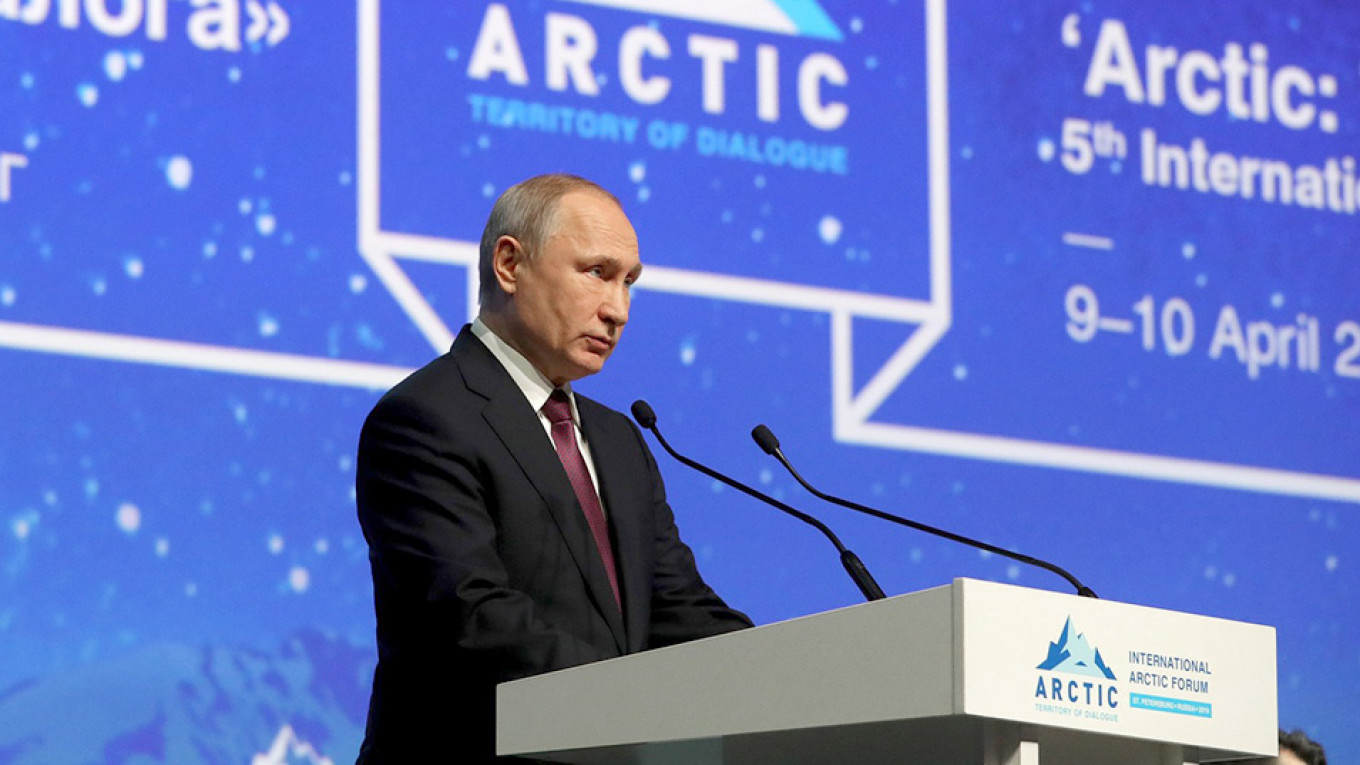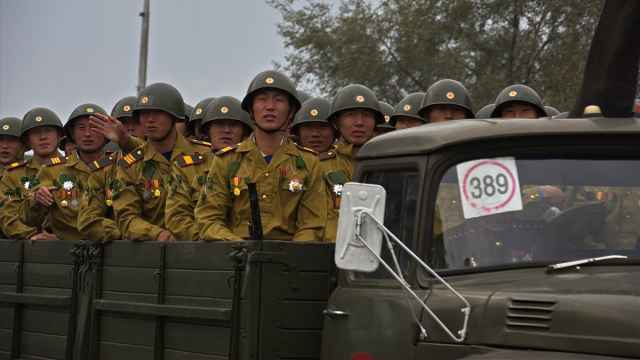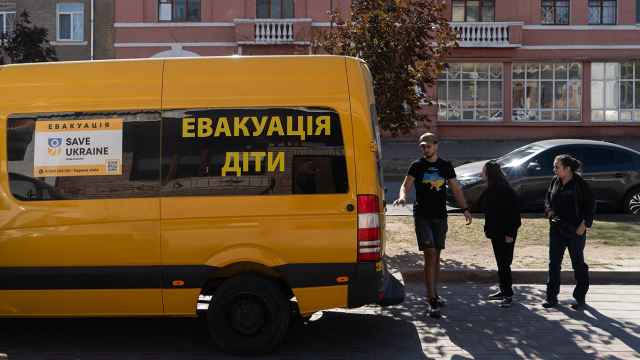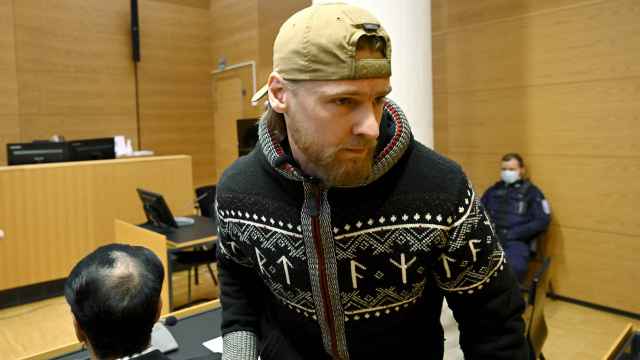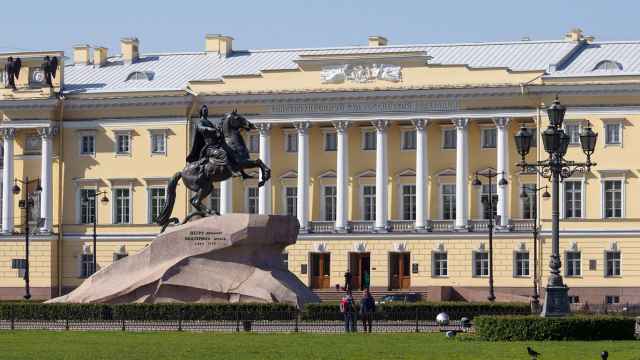With Russia’s economy faltering under an onslaught of Western sanctions, Russian President Vladimir Putin attended the 5th International Arctic Forum in St. Petersburg this week to promote the resource-rich region's development.
Presentations and panel discussions between more than 3,600 Russian and international lawmakers, scientists and businesspeople wrapped up on Wednesday.
Delegates discussed topics including the Northern Sea Route, Arctic shelf development, OPEC, the production and use of liquified natural gas (LNG), the brain drain from Russia’s Arctic regions, the development of infrastructure in Arctic towns and ecotourism.
Here is a selection of highlights from the two-day forum:
On the development of the Northern Sea Route
— “A global transportation corridor is going to be built compromising the Northern Sea Route ... last year the freight volume through the Northern Sea Route hit the mark of 20 million, which is three times the Soviet record which was reached back in 1987,” said Putin.
— “We’re going to increase our icebreaker fleet ... by 2035, it’s going to have no fewer than 13 heavy icebreakers and nine of them are going to be nuclear-powered. Our goal is to make the Northern Sea Route secure, safe and profitable,” Putin said.
— “The revival of the 'industrial' exploitation of the Northern Sea Route is of vital importance to us. In Soviet times, it served as a strategic transport route, and remains a direct line from Europe to Asia,” said Krasnoyarsk region governor Alexander Uss.
— “The breakthrough in Arctic development was related to the emergence of nuclear-powered ships … a nuclear fleet has been created this year and we are celebrating 60 years from the first icebreaker named after Lenin … We can say with no doubt that today, Russia is the only country in the world with nuclear-powered icebreakers … the Northern Sea Route is particularly important to avoid the straight and narrow channels controlled by other countries,” said Oleg Naraykin, vice president of the Kurchatov Institute national research center.
On tax relief to promote Arctic development
“The government is working together with experts and business representatives ... to come up with a draft federal law on a special preferential system for investors into the Arctic with the intention of this draft law being adopted by the State Duma as early as its autumn session,” said Putin.
“We invite our foreign partners to joint work to create port hubs at the endpoints of the (Northern Sea) route,” Putin said.
On OPEC
— “We are ready for cooperation with OPEC in decision-making ... But whether it would be cuts, or just a stoppage at the current level of output, I am not ready to say,” said Putin.
— “We are not supporters of uncontrollable price rises,” Putin said.
— “Of course, we and our partners ... are closely watching the market. We agreed that if there is a need for joint efforts, we will gather in the second half of the year and hold discussions,” said Putin.
On ecotourism
— “Striking a balance between economic development and preserving the Arctic is just one challenge … We have been involved in the complete cleanup of the Arctic. Since 2012 we have reprocessed more than 80,000 tons of litter ... We are also establishing new national parks. I refer first and foremost to the Russian Arctic National Park ... it is important to make sure that additional measures are taken for environmental tourism,” said Putin.
On microfinancing
“We want to make industrial entrepreneurship more competitive,” said Igor Skubenko, Head of Municipal Formation in Severodvinsk.
Reuters contributed reporting to this article.
A Message from The Moscow Times:
Dear readers,
We are facing unprecedented challenges. Russia's Prosecutor General's Office has designated The Moscow Times as an "undesirable" organization, criminalizing our work and putting our staff at risk of prosecution. This follows our earlier unjust labeling as a "foreign agent."
These actions are direct attempts to silence independent journalism in Russia. The authorities claim our work "discredits the decisions of the Russian leadership." We see things differently: we strive to provide accurate, unbiased reporting on Russia.
We, the journalists of The Moscow Times, refuse to be silenced. But to continue our work, we need your help.
Your support, no matter how small, makes a world of difference. If you can, please support us monthly starting from just $2. It's quick to set up, and every contribution makes a significant impact.
By supporting The Moscow Times, you're defending open, independent journalism in the face of repression. Thank you for standing with us.
Remind me later.


